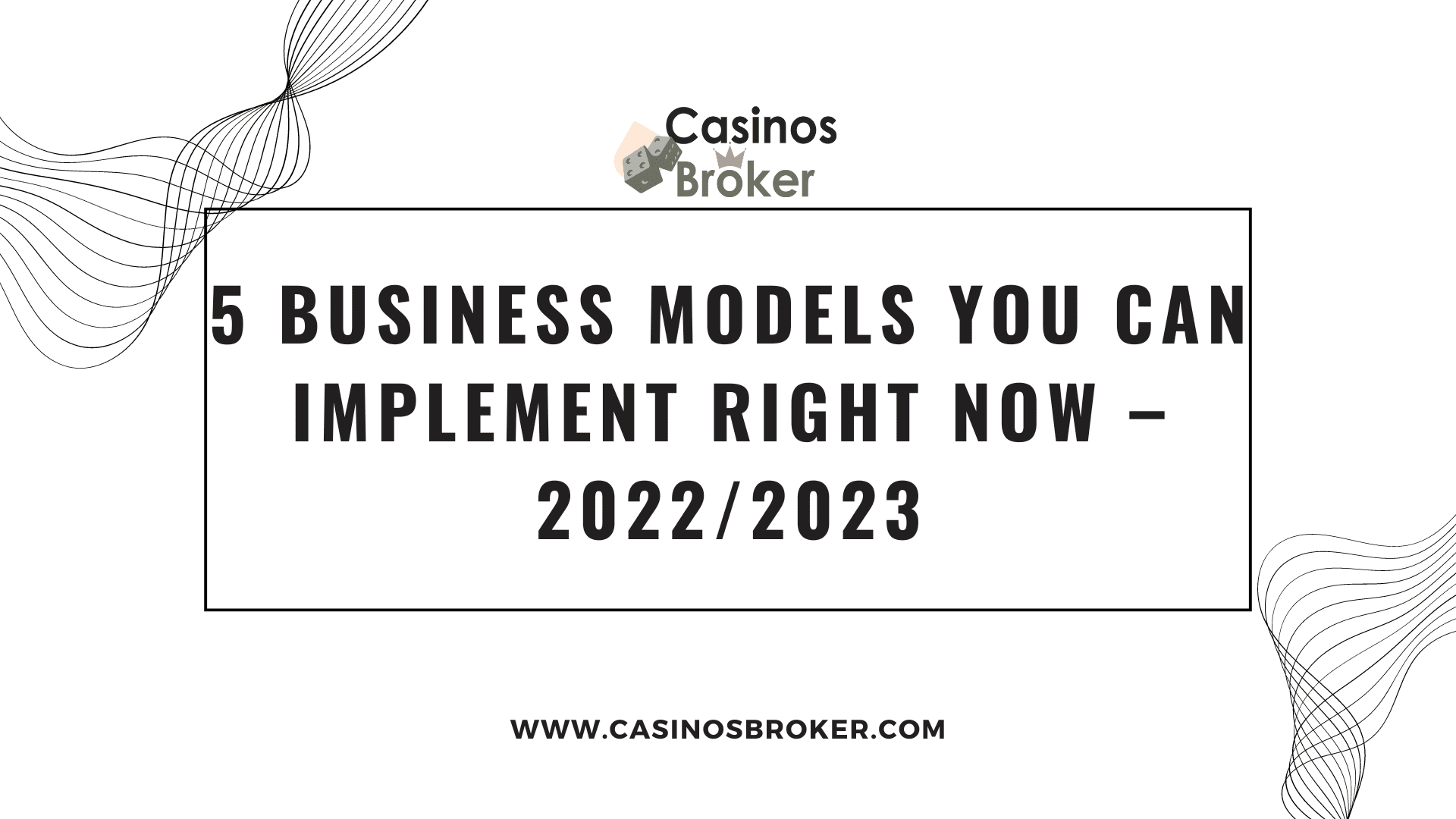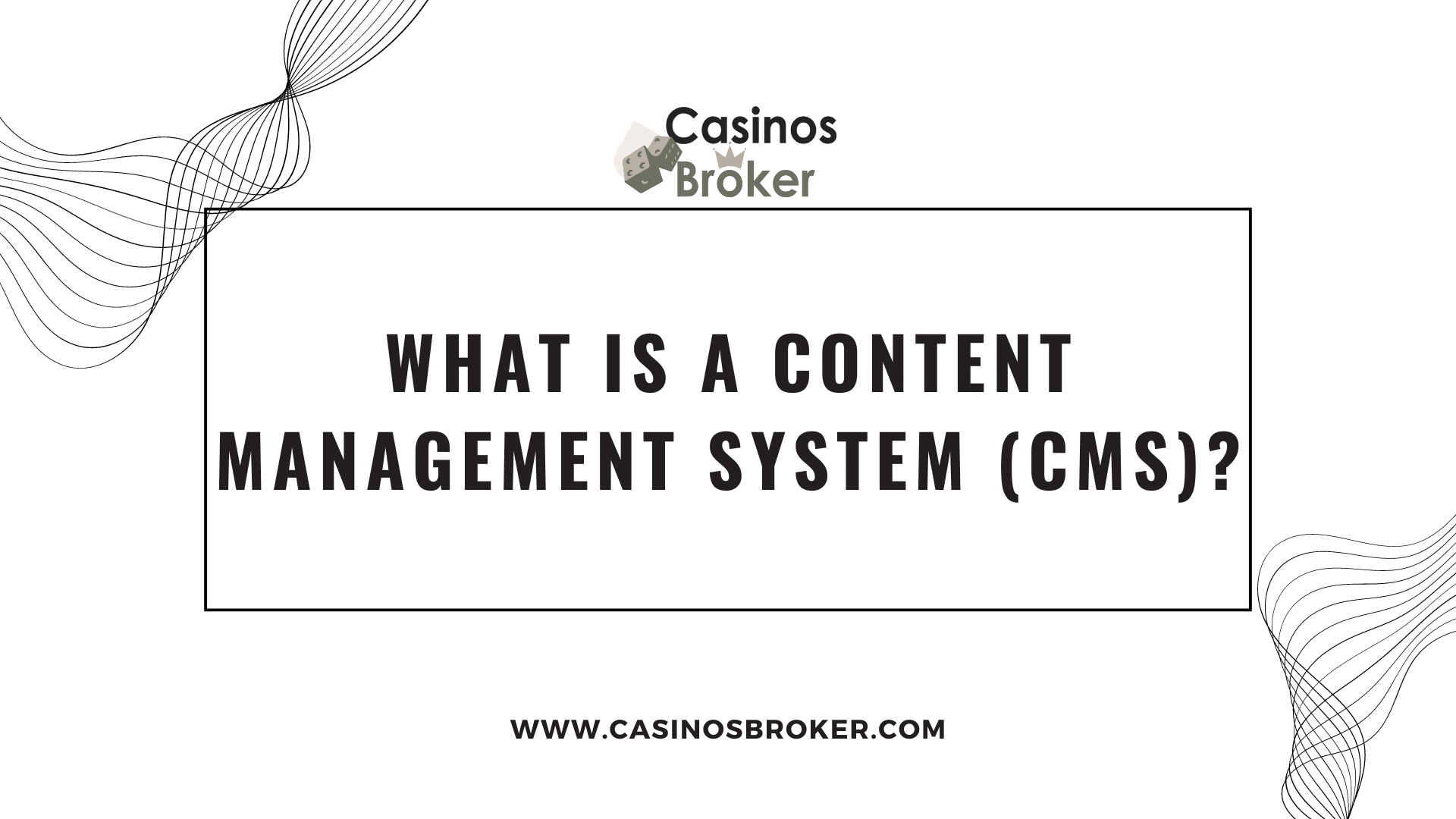Introduction
Launching and scaling an online gambling operation—whether an online casino, crypto casino, sportsbook, or hybrid platform—takes more than capital and a good product idea. It requires a resilient team structure, clear processes, and a culture that supports high performance and regulatory discipline. Competition is fierce, regulations are complex, and customer expectations are unforgiving. Your ability to recruit, onboard, and retain the right people is one of the strongest predictors of long-term success.
At CasinosBroker, we spend every day working with operators, affiliates, and investors who are building or buying iGaming businesses. One theme never changes: a strong team multiplies the impact of your strategy and technology stack. This comprehensive guide walks through how to design your organization, hire the right talent, track performance, and build an HR brand that attracts top candidates in iGaming’s global talent market.
Why Investing in Team-Building Pays Off
The financial angle
Customer retention is cheaper than acquisition—and the same logic applies to employees. Once you invest in recruiting, training, and developing a capable team member, retaining that person is almost always more cost-effective than replacing them. Turnover disrupts operations, raises costs (recruiting fees, training time, lost productivity), and can even put compliance and service-level agreements at risk.
Effective teams also lift revenue. Cohesive, well-coordinated groups execute strategies faster, improve conversion and retention metrics, and reduce error-driven losses (chargebacks, bonus abuse, payment downtime). Think of return on relationships (ROR): the value of trust, collaboration, and knowledge-sharing converted into tangible business outcomes. In iGaming—where speed, risk control, and customer lifetime value (LTV) are everything—ROR is a durable advantage.
The business angle
Startups often begin with a lean team, but sustainable growth comes from building a structure that frees leadership from daily firefighting. When qualified specialists own critical functions—risk management, payments, VIP retention, affiliate relationships, compliance—leaders can focus on strategy, expansion, and innovation. Hiring the right people doesn’t just add capacity; it builds resilience. With strong teams, you can enter new markets faster, keep regulatory pace, and localize your product without sacrificing quality.
The marketing angle
Your reputation as an employer influences everything from partner trust to investor interest. Companies with engaged, motivated teams attract better candidates, draw favorable attention on LinkedIn and industry media, and display stability through annual reports and thought leadership. In the iGaming sector, where partnerships and B2B relationships are pivotal, a strong HR brand signals operational maturity and reduces perceived risk for PSPs, platform providers, studios, and affiliates.
The Core Organizational Structure of an Online Casino or Sportsbook
You can technically launch with a small team—even a single founder leveraging vendors and managed services—but scale demands specialist roles. Below are the functional pillars most successful operators assemble over time, whether in-house or via trusted partners.
Legal and compliance
Gambling operations face complex regulations around licensing, KYC/AML, responsible gambling, data protection, and marketing. Your legal and compliance team manages:
– Licensing and certifications (e.g., MGA, UKGC, Isle of Man, Gibraltar, new Curaçao framework)
– Policy development (KYC/AML, RG, data retention)
– Vendor and affiliate contracts
– Advertising compliance and content approvals
– Market entry due diligence
– Dispute resolution and player complaints
Given regulatory shifts—such as Curaçao’s transition to a modernized licensing regime and ongoing advertising restrictions in several European countries—this department is mission-critical.
Finance and accounting
Finance manages cash flow, PSP reconciliation, tax and audit, and financial reporting:
– Accounts payable and receivable
– PSP settlement and reconciliation
– Fraud/chargeback oversight with risk/fraud teams
– Financial modeling and budgeting
– Jurisdictional tax compliance
– Treasury and crypto custody (for crypto casinos)
You’ll need specialists comfortable with payment orchestration and multi-currency operations, including handling stablecoins where relevant.
Content and account management
Account managers act as the connective tissue between your platform and external partners:
– Game studio relationships and content curation
– Aggregator interactions and rapid game release integrations
– Negotiating promo campaigns, network tournaments, and exclusive launches
– Monitoring performance, crash reports, and scheduled maintenance
Content quality and velocity drive revenue; your account managers ensure your lobby stays fresh and localized.
Technical operations and support
Whether your platform is proprietary or third-party, you need round-the-clock technical coverage:
– Uptime monitoring and incident response
– Configuration, API integrations, and deployments
– Game and payment provider integrations
– Performance optimization and CDN strategy
– Helpdesk tooling and SLA accountability
Gaming customers expect 24/7 reliability. Any downtime in payments or gameplay quickly becomes a social media crisis.
Player support and responsible gambling
Customer support is the human face of your brand. Today, even with chatbots, players expect empathy and fast resolutions:
– 24/7 multilingual support by email, live chat, and social channels
– Escalation protocols for VIPs and payment-critical issues
– Chargeback and dispute handling with compliance oversight
– Proactive RG outreach and exclusion handling
– KYC document verification coordination with compliance
Language coverage matters. At minimum, English plus the dominant languages of your target markets (e.g., German for DACH, Spanish for LATAM, Japanese for Japan-facing brands, Arabic for MENA) can meaningfully improve satisfaction and trust.
Marketing, CRM, and VIP
Marketing drives acquisition, while CRM and VIP teams drive retention and player value:
– SEO, paid media, and social advertising within legal boundaries
– Affiliate management and tracking
– On-site promotions and bonus mechanics
– Lifecycle CRM: onboarding, churn recovery, reactivation, and cross-sell
– VIP management: tailored offers, personal service, and responsible value management
– Analytics for segment performance and offer ROI
Acquisition is costly; LTV hinges on intelligent segmentation, relevant offers, and frictionless experiences.
Sportsbook trading and risk management (for sportsbook operators)
For sportsbooks, specialist coverage includes:
– Trading and pricing (often via managed trading services for smaller teams)
– Risk profiling and limits management
– Market suspension rules and event integrity
– Bet settlement accuracy and latency control
You can outsource trading to established providers initially, then bring it in-house as your volume grows.
Payments and fraud
Payments are both a growth and risk lever:
– PSP routing and optimization
– Conversion testing across checkout flows
– Chargeback prevention and representment
– Velocity checks, device fingerprinting, and bonus abuse mitigation
– Crypto cashier management and chain analytics where applicable
A 1–2% lift in deposit conversion can dwarf entire campaign budgets. Treat payments as a performance function, not just operations.
Data, BI, and product analytics
Data teams translate raw information into decisions:
– Revenue and cohort analysis
– Player value modeling and predictive churn
– Bonus and campaign ROI
– A/B and multivariate testing
– Regulatory reporting and data retention controls
Centralized, trusted data avoids politics and accelerates improvement.
HR and talent acquisition
Your HR function does far more than “fill seats”:
– Employer branding and culture design
– Compliance with labor and global hiring laws
– Compensation frameworks and pay equity
– Onboarding, L&D, and performance management
– Engagement, well-being, and retention programs
Global iGaming talent is mobile. A respected HR brand can halve time-to-hire and reduce compensation premiums.
 A Practical Reference Table: Core Departments, Roles, Tools, and KPIs
A Practical Reference Table: Core Departments, Roles, Tools, and KPIs
| Department | Key Roles | Primary Responsibilities | Typical Tools/Stack | Core KPIs |
|---|---|---|---|---|
| Legal & Compliance | Head of Compliance, Legal Counsel, AML Officer, RG Officer | Licensing, KYC/AML policy, RG, contracts, advertising compliance | Compliance suites, sanction screening, policy management | Pass rates, audit findings, SAR quality, regulatory incidents |
| Finance | CFO/Controller, Accountants | PSP reconciliation, tax, reporting, treasury | ERP/accounting, BI dashboards | Cash flow accuracy, close cycle time, reconciliation errors |
| Payments & Fraud | Payments Lead, Fraud Analyst | PSP routing, chargeback prevention, bonus abuse control | Payment gateways, 3DS, chargeback tools, device fingerprinting | Deposit approval rate, chargeback rate, net fraud loss |
| Content & Account Mgmt | Content Lead, Account Managers | Game/market coverage, promotions, integrations | Aggregator portals, release trackers | Game adoption rate, content-driven GGR lift |
| Tech Ops | DevOps/SRE, Integration Engineers | Uptime, incident response, integrations | Monitoring/APM, ticketing, CI/CD | Uptime %, MTTR, deployment failure rate |
| Player Support | Support Manager, Agents | 24/7 support, escalations, KYC assistance | Helpdesk/CRM, QA tools, knowledge base | First response time, CSAT, resolution time |
| Marketing & CRM | Head of Marketing, CRM Manager, Affiliate Manager | Acquisition, lifecycle campaigns, VIP | CRM, ESP, CDP, affiliate trackers, analytics | CAC, LTV, retention %, VIP share of NGR |
| Sportsbook (if applicable) | Head of Trading, Risk Analysts | Pricing, limits, market management | MTS, risk engines, feed providers | Hold %, exposure, settlement accuracy |
| Data & BI | BI Lead, Analysts | Reporting, modeling, experimentation | Data warehouse, ETL, visualization | Report reliability, testing velocity, insights adopted |
| HR & Talent | HRBP, Recruiters, L&D | Hiring, onboarding, engagement, compliance | ATS, HRIS, performance platforms | Time-to-hire, retention, time-to-productivity |
Leadership Layers and Operating Models
C-level and directors
Owners and investors typically appoint a C-suite to run day-to-day operations: CEO/COO for strategy and execution, CFO for financial discipline, CMO for growth, CTO/CPTO for technology and product, and a Head of Compliance to steward regulatory risk. Good top-level leaders build bridges across functions and remove obstacles before they cause revenue or compliance damage.
Managers and team leads
Managers translate strategy into action. They set team goals, design workflows, supervise quality, and coach for performance. In iGaming, effective middle management is the difference between “ideas” and measurable KPIs.
Individual contributors
Specialists execute the daily tasks that keep the platform running—reviewing documents, responding to players, integrating games, writing CRM journeys, or reconciling payments. If your platform feels reliable and your promos land on time, it’s because your ICs are well-trained and supported.
Fractional and managed services
For specific needs—such as sportsbook trading, affiliate management, or AML program design—fractional executives and managed services can bridge gaps during launch or rapid growth phases. Use them to accelerate learning and avoid early mis-hires; just plan a long-term transition path if strategic ownership is required.
Building In-House vs Outsourcing vs Hybrid
There is no one-size-fits-all. Many operators start hybrid: in-house leadership for sensitive or high-impact functions, managed services for specialized tasks, and contractors for surges in workload.
– In-house: best for culture, IP, speed of iteration, and confidentiality. Works well for CRM, VIP, product analytics, and core compliance.
– Outsourcing/managed services: efficient for operationally heavy or 24/7 functions (first-line support, KYC checks, trading), or where economies of scale matter.
– Hybrid: retain strategic control (e.g., Head of Payments) while external teams handle certain processes (e.g., KYC document review during peak hours).
Beware vendor lock-in and ensure you have data portability, clear SLAs, and documented runbooks.
Distributed and Remote Teams
Remote and hybrid work are now standard in iGaming. Done right, distributed teams help you:
– Cover 24/7 support across time zones
– Provide native language coverage for target markets
– Access specialized skills without relocation
Success depends on structured communication, clear documentation, and unified culture. Invest early in collaboration tools, security training (especially for access to production systems and payment consoles), and incident response playbooks. If hiring globally, consider employer-of-record (EOR) solutions to stay compliant with local labor laws.
When to Expand Your Team
As you acquire more players, enter new markets, or diversify products (e.g., adding live casino or sportsbook), you’ll see leading indicators that it’s time to expand:
– Rising ticket backlog or response times in support
– Slower release velocity for content or product features
– Payment conversion decline due to insufficient PSP coverage or routing
– Compliance backlogs (KYC verifications exceeding SLAs)
– Data bottlenecks: stakeholders waiting on reports to make decisions
Growth paths typically take two forms.
Horizontal growth
You broaden capabilities without adding management layers. Example: launching a Japanese language website and hiring native support, local PSPs, and a regional affiliate manager. Benefits include agility, improved specialization, and higher job satisfaction through skill development. Horizontal growth requires strong process documentation and clear goals so new hires plug in efficiently.
Vertical growth
Team members move into leadership roles and assume decision-making responsibility. As managers rise, the organization becomes more scalable. Not every goal requires more headcount; automation (KYC workflows, bonus rules engines, CRM triggers) and process optimization can free capacity without expanding the payroll.
Finding and Hiring Skilled Professionals
Two primary sourcing approaches work well in iGaming.
Internal HR department
This is the path for operators with steady hiring plans. An in-house HR team owns the employer brand, creates structured interview processes, builds talent pipelines, and maintains consistent culture standards.
External recruitment partners
Startups and scale-ups often partner with specialist recruiters who understand the iGaming market, compensation benchmarks, and regulatory nuances. This approach can reduce time-to-hire for hard-to-fill roles like Head of Payments, RG Officer, or CRM Lead. Many operators use a blended approach: recruiters handle specialized roles while HR manages volume positions.
Practical hiring steps that raise your success rate:
– Write precise job descriptions with clear outcomes and KPIs, not just task lists.
– Use structured interviews and role-relevant assessments (e.g., build a basic lifecycle CRM campaign, evaluate a suspicious transaction pattern, or triage a mock incident).
– Run background and reference checks, especially for roles with financial or data access.
– Offer competitive total-reward packages, including training budgets and remote-work flexibility, not just salary.
Onboarding That Sticks
If a new hire leaves after their probation period, you pay twice: once for the initial hire and once again to re-fill and re-train. Effective onboarding reduces time-to-productivity, improves retention, and prevents early misalignment.
A practical onboarding plan:
– Preboarding: share company overview, key policies (security, RG, AML), org chart, and tools access before day one. Ensure hardware, VPN credentials, and accounts are ready.
– Week 1: introduce the role’s mission, success metrics, and stakeholders. Pair each hire with a “buddy” for informal guidance. Provide product walkthroughs for the casino and sportsbook (if applicable).
– First 30 days: set specific goals (e.g., respond to 90% of tickets within SLA, publish two lifecycle campaigns, reconcile three PSPs end-to-end). Hold weekly check-ins focused on learning and blockers.
– Days 30–90: ramp up ownership, introduce cross-functional projects, and formalize development plans. Encourage shadowing across teams, especially between support, payments, and compliance.
Managers typically need longer to ramp (up to 6–9 months) because they must diagnose processes, build trust, and reorganize workflows. Good onboarding shortens that curve.
Training and Development
In iGaming, where regulations, markets, and technologies shift constantly, learning is not optional. Invest in role-specific training:
– Compliance: AML/KYC refreshers, RG certifications, GDPR and data handling, advertising rules by market
– Payments: new PSPs, 3DS changes, SCA requirements, chargeback best practices, crypto chain analytics
– Marketing/CRM: segmentation, experimentation, deliverability, gamification, and offer economics
– Tech: secure coding, CI/CD, incident management, data platforms, and API integrations
– Leadership: coaching, OKRs, change management, and conflict resolution
Beyond formal courses, create knowledge-sharing rituals: postmortems after incidents, “lunch and learn” sessions, and Playbooks for recurring tasks. Each new skill compounds the team’s capabilities.
Motivation and Performance Tracking
A robust motivation system and transparent performance tracking underpin productivity and innovation.
Define meaningful KPIs linked to business goals:
– Marketing and CRM: CAC, LTV, retention rate, net gaming revenue (NGR) per segment, offer ROI
– Payments: deposit approval rate, successful cashout time, chargeback rate, net fraud loss
– Support: first response time, resolution time, CSAT, QA score
– Compliance: SLA on KYC verification, SAR quality, audit findings
– Tech: uptime, mean time to recover (MTTR), deployment frequency, change fail rate
– Sportsbook: hold percentage, exposure by market, settlement accuracy, latency
Compensation alignment matters. Use balanced scorecards to discourage perverse incentives (e.g., don’t tie VIP bonuses purely to short-term turnover; include RG adherence and healthy margin targets). Combine financial rewards (bonuses, profit sharing) with non-financial motivators (career development, learning budgets, flexible work, internal recognition, and relocation support).
Documenting Internal Processes
Clear standard operating procedures (SOPs) and runbooks save time, reduce errors, and make onboarding simpler. They’re essential when a single person owns a process; without documentation, you risk losing critical knowledge if they leave.
Good process documentation includes:
– Step-by-step actions and decision points (e.g., bonus abuse investigation workflow)
– Screenshots or short screencasts
– Access rights needed and security notes
– SLAs and escalation paths
– Metrics to monitor and common failure modes
Keep documentation living: versioned, easy to find, and regularly reviewed after incidents or major changes. When processes are clear, you can scale confidently and delegate without chaos.
Building a Culture and HR Brand Candidates Admire
Culture is how decisions get made when leadership isn’t in the room. In iGaming, a strong culture looks like:
– High standards with high support: people have what they need to do their best work
– Transparency: weekly updates, open Q&A, and visible roadmaps reduce friction
– Accountability with empathy: mistakes become learning opportunities, not blame games
– Respect and inclusion: teams feel safe flagging risks, suggesting changes, and giving feedback
– Consistent tools: Slack/Teams, Jira/Trello, Confluence/Notion, helpdesk platforms, and performance systems used the same way across the company
Your HR brand—how the market sees you as an employer—grows from your internal culture. Share wins and stories transparently. Publish thought leadership, support industry events, and encourage employees to speak at conferences. In a competitive hiring market, authenticity beats polish.
 Pros and Cons: In-House vs Outsourced vs Hybrid Teams
Pros and Cons: In-House vs Outsourced vs Hybrid Teams
In-house teams
Pros:
– Strong control over quality, culture, and IP
– Faster iterations for product and marketing
– Better cross-functional collaboration
Cons:
– Higher fixed costs and management overhead
– Longer time-to-hire for niche roles
– Risk of skill gaps during rapid expansion
Outsourced/managed services
Pros:
– Faster ramp-up and 24/7 coverage
– Access to specialized capabilities (trading, KYC, multilingual support)
– Variable cost structure and easy scaling
Cons:
– Potential loss of strategic control
– Quality may vary by vendor and team
– Data portability and vendor lock-in risks
Hybrid model
Pros:
– Strategic control with operational flexibility
– More resilient to spikes in workload
– Efficient path from launch to scale
Cons:
– Requires careful vendor management and SLAs
– Communication overhead across organizations
A Realistic Example: First-Year Headcount for a New Crypto Casino
Imagine “NovaSpin,” a Malta-registered operator launching a crypto-friendly casino focusing on Canada, Japan, and parts of LATAM. They license third-party platform software, work with a game aggregator, and plan to add a small sportsbook in month nine.
– Months 0–3 (Pre-launch): CEO/COO, Head of Compliance, Payments Lead, CMO, CRM Manager, Tech Ops/Integrator, Content Manager, Finance/Accountant, 2–3 support agents (English/Japanese), part-time legal counsel. Total: 10–12 FTE.
– Months 4–6 (Launch): Add 2 support agents (Spanish, French), a dedicated Affiliate Manager, a Fraud Analyst, and a BI Analyst. Total: 15–17 FTE.
– Months 7–12 (Scale): Expand VIP (2), add RG Officer, a second CRM Specialist, and shift to 24/7 support across three shifts (8–10 agents). For sportsbook pilot, contract a managed trading service and appoint an internal Sportsbook Manager. Total: 22–26 FTE plus managed services.
KPIs to watch: deposit approval rate (>90%), first response time (<60 seconds for chat), D1/7/30 retention by market, net fraud losses (<0.2% of deposits), bonus ROI (>1.5x), uptime (>99.9%), and compliance SLA adherence.
 Frequently Asked Questions
Frequently Asked Questions
What is the minimum team needed to launch an online casino?
With a reliable platform provider and aggregator, you can launch lean: an operations leader (CEO/COO), Head of Compliance, Payments Lead, CMO/CRM specialist, Content Manager, Tech Ops/Integrator, Finance/Accountant, and a small support team covering your initial languages. That’s typically 8–12 people, supplemented by contractors (legal, creative) and managed services (KYC checks, 24/7 support overflow) as needed.
Should I build my own platform or use a third-party solution?
For most new operators, a third-party platform reduces time-to-market, upfront cost, and technical risk. As you scale and differentiate, consider building or customizing components (e.g., CRM logic, bonus engine) while maintaining platform stability. A full proprietary platform requires a larger engineering budget and mature product leadership.
How do I cover 24/7 support without bloating headcount?
Use staggered shifts across time zones and augment with reputable BPO partners for overflow and non-core languages. Maintain an internal tier-2/tier-3 escalation team for payments, VIP, and compliance-sensitive issues. Carefully define SLAs and QA processes to ensure quality remains high.
What’s changing with Curaçao licensing?
Curaçao has been transitioning to a modernized licensing framework designed to raise compliance standards, increase oversight, and strengthen player protection. Operators should expect more stringent requirements around AML/KYC, responsible gambling, and technical controls. If Curaçao is part of your strategy, plan ahead for new documentation, due diligence, and potential audits. Always verify the latest guidance with qualified counsel; updates continue to roll out.
How do crypto payments change my hiring plan?
Crypto adds complexity in payments and compliance. You’ll need expertise in wallet flows, on/off-ramps, chain analytics for AML screening, and handling stablecoins. Hire or upskill a Payments Lead familiar with crypto, and ensure your compliance team understands on-chain risk indicators and travel rule obligations where applicable.
What KPIs matter most in the first year?
Focus on the few metrics that drive sustainability: deposit conversion rate, successful cashout time, D30 retention, LTV-to-CAC ratio, chargeback/fraud rate, uptime, and compliance SLA adherence (especially KYC verification times). For marketing, track segment performance and bonus ROI; for operations, monitor incident response and support CSAT.
How do I hire for compliance in multiple markets?
Start with a Head of Compliance experienced in multi-jurisdiction oversight and add specialists as you enter regulated markets. Build a network of local legal advisors for advertising rules, data protection, and market-specific requirements. Create standardized core policies with market-specific annexes to keep documentation consistent yet flexible.
Can AI replace parts of my team?
AI can enhance workflows—triaging support tickets, forecasting churn, detecting anomalous behavior, and optimizing PSP routing—but it should augment, not replace, human oversight. Responsible gambling, AML decisions, and VIP relationship management demand human judgment. If you adopt AI, add governance: model monitoring, bias checks, and clear accountability.
What does a strong employer brand look like in iGaming?
It looks real. Share your roadmap, celebrate team wins, highlight learning and growth, and be transparent about challenges. Feature your people and their stories across your website and LinkedIn. Offer flexible work, meaningful development budgets, and ethical performance incentives. When candidates feel your culture is genuine, you’ll fill roles faster and keep your top performers longer.
How can CasinosBroker help?
Whether you’re planning your first launch, entering a new region, or re-structuring for scale, CasinosBroker can advise on operating models, headcount planning, vendor selection, and readiness for M&A. If you’re evaluating acquisitions or partnerships, we can also help you assess team strength, cultural fit, and organizational risks as part of due diligence.
Conclusion
In iGaming, the difference between a good idea and a great business is the team that executes it. A strong legal and compliance backbone, a technical operation that never sleeps, a payments function that thinks like a growth team, and a marketing/CRM engine that builds loyal players—these are the pillars of a resilient gambling brand. But the glue is culture: clear goals, documented processes, continuous learning, and a fair, motivating performance system.
Build thoughtfully. Start lean with the right roles, then scale horizontally into new markets and vertically into leadership as your complexity grows. Use managed services strategically, invest early in onboarding and documentation, and treat your HR brand as a growth asset. If you’re deliberate about people and process today, you’ll move faster and sleep better tomorrow.
If you’re still deciding how to structure your team, which roles to prioritize, or how to balance in-house versus partners for your online casino, crypto casino, or sportsbook, contact CasinosBroker for a free consultation. We’ll help you design a hiring roadmap that fits your strategy, budget, and growth targets.





